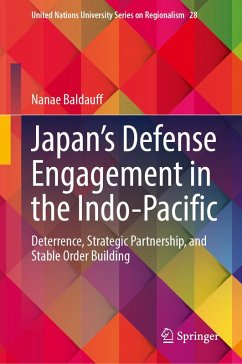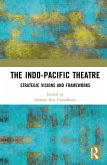This original book systematically examines Japan's defense engagement with its strategic partners since the end of the Cold War based on Japan's national security strategy. The author maps three defense engagement activities: military exercises, capacity building, and defense equipment transfer and technology cooperation - and subsequently evaluates these against the three national security objectives: deterrence, cooperative security, and the Free and Open Indo-Pacific vision. The book asks two important research questions: why is Japan active in defense engagement with the armed forces of its strategic partners? And, what purposes do Japan's self-defense forces pursue? Through the ten carefully selected cases of strategic partners: Australia, India, Indonesia, Vietnam, the Philippines, ASEAN, the UK, France, NATO, and the EU, the book follows a structured, cross-case comparison based on the analytical framework developed for the research. It also discusses the evolution of Japan's postwar defense policy, providing a solid background for the case studies. The book overall argues that, while the Japan-US alliance is still the most indispensable, Japan's strategic partnerships are a valuable instrument of deterrence that contributes to Japan's national security objectives. In order to more effectively pursue these objectives and thus secure the national interest, Japan must pursue a purpose-driven defense engagement.
Dieser Download kann aus rechtlichen Gründen nur mit Rechnungsadresse in A, B, BG, CY, CZ, D, DK, EW, E, FIN, F, GR, HR, H, IRL, I, LT, L, LR, M, NL, PL, P, R, S, SLO, SK ausgeliefert werden.









